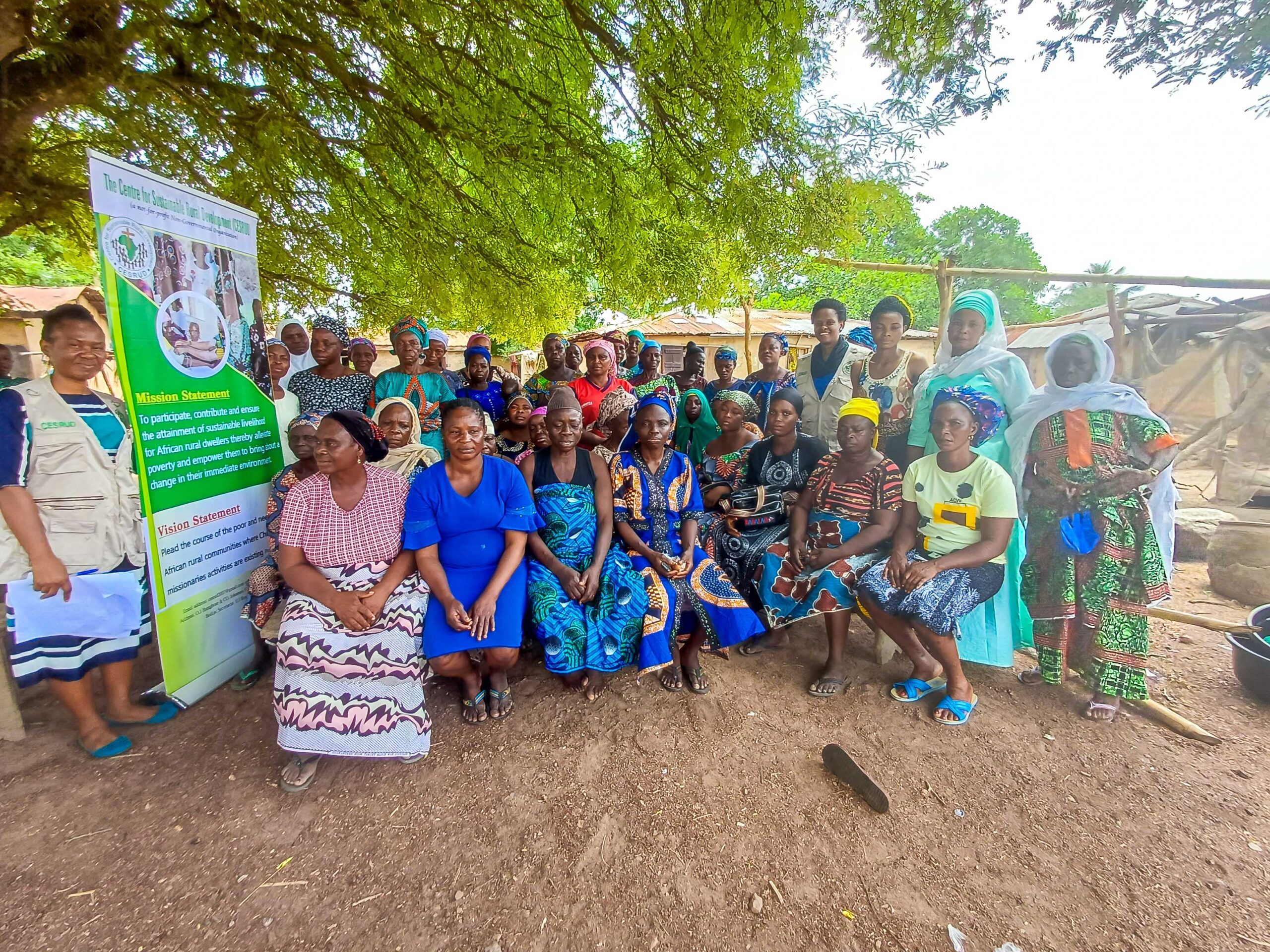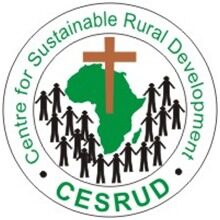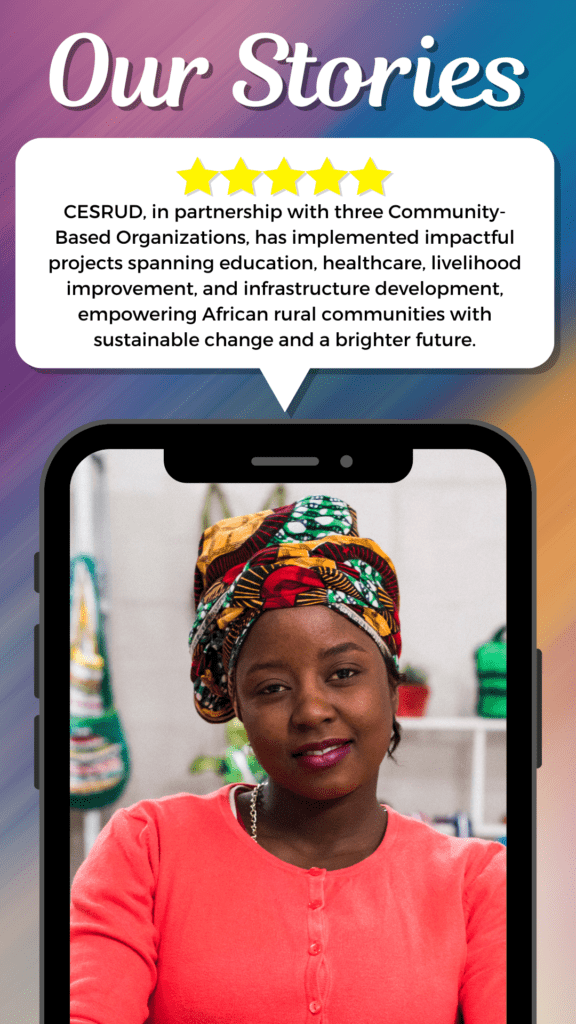In the vast landscapes of Africa, where rural communities face numerous challenges, the presence of missionary activities brings hope and positive change. African rural communities have long been recipients of missionary efforts, aimed at empowering individuals and fostering sustainable development. In this article, we will explore the vital role played by missionaries in African rural communities, their impact on education, healthcare, social development, and more. Join us on a journey of transformation and empowerment in African rural communities.
I. Understanding African Rural Communities
A. Definition and Characteristics of African Rural Communities
African rural communities are predominantly agrarian, with limited infrastructure and access to basic services. These communities often rely on subsistence farming, face geographical isolation, and have unique cultural traditions.
B. Population Statistics and Demographic Trends
According to recent statistics, approximately 52.24% of the African population resides in rural areas, with a growing trend of urban migration. Over 400 million people live in sub-Sahara Africa. The population dynamics, including age distribution and population growth, pose specific challenges and opportunities for missionary activities.
C. Economic Landscape and Challenges
African rural communities encounter economic challenges such as poverty, limited job opportunities, and lack of access to markets. Missionary activities aim to address these issues through sustainable livelihood programs and economic empowerment initiatives.
D. Access to Basic Services: Education, Healthcare, and Infrastructure
Education, healthcare, and infrastructure remain critical concerns in African rural communities. Missionaries contribute to improving access to education by establishing schools, providing scholarships, and promoting adult literacy programs. They also offer healthcare services, including medical clinics, disease prevention campaigns, and health education initiatives. Furthermore, missionaries play a role in infrastructure development, including clean water projects, road construction, and renewable energy initiatives.
II. The Role of Missionary Activities in African Rural Communities
A. Historical Perspective: Missionary Work in Africa
Missionary work in Africa has a rich history that spans centuries. Missionaries have played a significant role in spreading education, healthcare, and Christianity throughout the continent, contributing to cultural exchanges and societal transformation.
B. Current Scope and Reach of Missionary Activities
Today, missionary activities in African rural communities are diverse and multifaceted. Missionary organizations, both local and international, collaborate with local communities, governments, and NGOs to address various challenges and empower individuals.
C. Contributions of Missionaries to Education and Literacy
Missionaries have been instrumental in establishing schools, training teachers, and providing educational resources in African rural communities. Through their efforts, literacy rates have improved, opening doors to knowledge, skills, and opportunities for individuals.
D. Impact of Missionary Healthcare Initiatives
Missionary healthcare initiatives bring critical medical services to remote African rural communities. These initiatives include medical clinics, mobile health units, immunization campaigns, and community health education programs. By addressing healthcare needs, missionaries contribute to improved well-being and reduced mortality rates.
E. Promotion of Social Development and Empowerment
Missionary activities extend beyond education and healthcare. They focus on holistic social development, empowering individuals and communities to address social issues, such as gender inequality, poverty, and human rights. Missionaries facilitate skills training, entrepreneurship programs, and community-building activities to promote self-reliance and sustainable development.
III. Challenges Addressed by Missionary Activities in African Rural Communities
A. Poverty Alleviation and Economic Empowerment
Missionary initiatives target poverty alleviation through economic empowerment projects, including vocational training, microfinance programs, and agricultural development. By equipping individuals with skills and resources, missionaries enable them to break the cycle of poverty and create sustainable livelihoods.
B. Healthcare and Disease Prevention
Missionaries address healthcare challenges by providing access to quality medical services, conducting health screenings, organizing awareness campaigns, and promoting preventive healthcare practices. Their efforts contribute to improved health outcomes and reduced disease prevalence.
C. Education and Literacy Enhancement
Through schools, scholarship programs, and adult literacy initiatives, missionaries promote education and literacy in African rural communities. By empowering individuals with knowledge and skills, missionaries open doors to economic opportunities and social advancement.
D. Women’s Empowerment and Gender Equality
Missionaries play a crucial role in promoting women’s empowerment and gender equality. They provide training, support entrepreneurship endeavors, and advocate for equal rights and opportunities for women in African rural communities.
E. Sustainable Agriculture and Food Security
Missionaries support sustainable agriculture practices, promote access to modern farming techniques, and introduce innovative approaches to enhance food security in African rural communities. By focusing on agricultural development, missionaries contribute to improved nutrition and economic stability.
IV. Success Stories and Case Studies
A. Community Development Initiatives
In the village of X, a missionary organization could establish a community center that serves as a hub for education, healthcare, and vocational training. This initiative has transformed the lives of community members, fostering self-sufficiency and empowerment.
B. Sustainable Livelihood Programs
In partnership with local communities, missionaries have implemented sustainable livelihood programs such as beekeeping, fish farming, and handicraft production. These initiatives have created alternative income sources and improved the economic well-being of individuals.
C. Education and Vocational Training Projects
Missionaries have set up schools and vocational training centers, equipping young individuals with valuable skills in areas like carpentry, sewing, and computer literacy. This has enhanced employment prospects and empowered individuals to contribute to their communities’ development.
D. Healthcare Interventions and Improvements
Through mobile health clinics and health education initiatives, missionaries have made significant strides in improving healthcare access and awareness in African rural communities. This has resulted in reduced mortality rates and improved overall health outcomes.
E. Testimonials from Beneficiaries
Testimonials from individuals who have directly benefited from missionary activities provide powerful accounts of transformation, emphasizing the positive impact on their lives and communities.
V. Collaboration and Partnerships for Sustainable Impact
A. Missionary Organizations and NGOs
Missionary organizations collaborate with local and international NGOs to leverage resources, expertise, and networks, maximizing their impact in African rural communities.
B. Local and International Government Agencies
Partnerships with government agencies at the local and international levels facilitate collaboration, resource allocation, and policy support for missionary activities, ensuring a more comprehensive and sustainable approach to development.
C. Community Engagement and Participation
Successful missionary activities involve active community engagement and participation. By involving community members in decision-making processes, initiatives become more contextually relevant and sustainable.
D. Leveraging Technology for Outreach and Support
Missionaries harness technology for outreach, communication, and support. Utilizing mobile apps, online platforms, and digital tools, missionaries can extend their reach and provide valuable resources to African rural communities.
VI. Future Outlook and Challenges Ahead
A. Ensuring Long-term Sustainability
Missionary activities must focus on creating sustainable models that can continue to thrive beyond initial interventions. This requires building local capacity, fostering ownership, and developing partnerships for long-term impact.
B. Addressing Cultural Sensitivity and Contextualization
Missionary activities should be sensitive to local cultures, customs, and traditions. An inclusive and respectful approach ensures that interventions are contextually relevant and well-received by the communities they aim to serve.
C. Measuring and Evaluating Impact
Continued monitoring, evaluation, and impact assessment are crucial for measuring the effectiveness of missionary activities. By collecting data and analyzing outcomes, missionaries can refine their approaches and demonstrate their impact to stakeholders.
D. Scaling Up Successful Models and Best Practices
Successful missionary initiatives should be scaled up and replicated in other African rural communities facing similar challenges. Sharing best practices and lessons learned enhances collective knowledge and improves the overall impact of missionary activities.
Missionary activities have a profound impact on African rural communities, empowering individuals, and fostering sustainable development. Through education, healthcare, social development, and economic empowerment, missionaries are transforming lives and contributing to the betterment of African rural communities. By addressing challenges and leveraging partnerships, these activities have the potential to create lasting positive change in the lives of individuals and communities alike. Let us join hands in supporting and amplifying the efforts to empower African rural communities and shape a brighter future for all.



Leave a Comment
Last Updated: June 30, 2023 by Jones Profit
Empowering African Communities: Transforming Lives Through Missionary Activities
In the vast landscapes of Africa, where rural communities face numerous challenges, the presence of missionary activities brings hope and positive change. African rural communities have long been recipients of missionary efforts, aimed at empowering individuals and fostering sustainable development. In this article, we will explore the vital role played by missionaries in African rural communities, their impact on education, healthcare, social development, and more. Join us on a journey of transformation and empowerment in African rural communities.
I. Understanding African Rural Communities
A. Definition and Characteristics of African Rural Communities
African rural communities are predominantly agrarian, with limited infrastructure and access to basic services. These communities often rely on subsistence farming, face geographical isolation, and have unique cultural traditions.
B. Population Statistics and Demographic Trends
According to recent statistics, approximately 52.24% of the African population resides in rural areas, with a growing trend of urban migration. Over 400 million people live in sub-Sahara Africa. The population dynamics, including age distribution and population growth, pose specific challenges and opportunities for missionary activities.
C. Economic Landscape and Challenges
African rural communities encounter economic challenges such as poverty, limited job opportunities, and lack of access to markets. Missionary activities aim to address these issues through sustainable livelihood programs and economic empowerment initiatives.
D. Access to Basic Services: Education, Healthcare, and Infrastructure
Education, healthcare, and infrastructure remain critical concerns in African rural communities. Missionaries contribute to improving access to education by establishing schools, providing scholarships, and promoting adult literacy programs. They also offer healthcare services, including medical clinics, disease prevention campaigns, and health education initiatives. Furthermore, missionaries play a role in infrastructure development, including clean water projects, road construction, and renewable energy initiatives.
II. The Role of Missionary Activities in African Rural Communities
A. Historical Perspective: Missionary Work in Africa
Missionary work in Africa has a rich history that spans centuries. Missionaries have played a significant role in spreading education, healthcare, and Christianity throughout the continent, contributing to cultural exchanges and societal transformation.
B. Current Scope and Reach of Missionary Activities
Today, missionary activities in African rural communities are diverse and multifaceted. Missionary organizations, both local and international, collaborate with local communities, governments, and NGOs to address various challenges and empower individuals.
C. Contributions of Missionaries to Education and Literacy
Missionaries have been instrumental in establishing schools, training teachers, and providing educational resources in African rural communities. Through their efforts, literacy rates have improved, opening doors to knowledge, skills, and opportunities for individuals.
D. Impact of Missionary Healthcare Initiatives
Missionary healthcare initiatives bring critical medical services to remote African rural communities. These initiatives include medical clinics, mobile health units, immunization campaigns, and community health education programs. By addressing healthcare needs, missionaries contribute to improved well-being and reduced mortality rates.
E. Promotion of Social Development and Empowerment
Missionary activities extend beyond education and healthcare. They focus on holistic social development, empowering individuals and communities to address social issues, such as gender inequality, poverty, and human rights. Missionaries facilitate skills training, entrepreneurship programs, and community-building activities to promote self-reliance and sustainable development.
III. Challenges Addressed by Missionary Activities in African Rural Communities
A. Poverty Alleviation and Economic Empowerment
Missionary initiatives target poverty alleviation through economic empowerment projects, including vocational training, microfinance programs, and agricultural development. By equipping individuals with skills and resources, missionaries enable them to break the cycle of poverty and create sustainable livelihoods.
B. Healthcare and Disease Prevention
Missionaries address healthcare challenges by providing access to quality medical services, conducting health screenings, organizing awareness campaigns, and promoting preventive healthcare practices. Their efforts contribute to improved health outcomes and reduced disease prevalence.
C. Education and Literacy Enhancement
Through schools, scholarship programs, and adult literacy initiatives, missionaries promote education and literacy in African rural communities. By empowering individuals with knowledge and skills, missionaries open doors to economic opportunities and social advancement.
D. Women’s Empowerment and Gender Equality
Missionaries play a crucial role in promoting women’s empowerment and gender equality. They provide training, support entrepreneurship endeavors, and advocate for equal rights and opportunities for women in African rural communities.
E. Sustainable Agriculture and Food Security
Missionaries support sustainable agriculture practices, promote access to modern farming techniques, and introduce innovative approaches to enhance food security in African rural communities. By focusing on agricultural development, missionaries contribute to improved nutrition and economic stability.
IV. Success Stories and Case Studies
A. Community Development Initiatives
In the village of X, a missionary organization could establish a community center that serves as a hub for education, healthcare, and vocational training. This initiative has transformed the lives of community members, fostering self-sufficiency and empowerment.
B. Sustainable Livelihood Programs
In partnership with local communities, missionaries have implemented sustainable livelihood programs such as beekeeping, fish farming, and handicraft production. These initiatives have created alternative income sources and improved the economic well-being of individuals.
C. Education and Vocational Training Projects
Missionaries have set up schools and vocational training centers, equipping young individuals with valuable skills in areas like carpentry, sewing, and computer literacy. This has enhanced employment prospects and empowered individuals to contribute to their communities’ development.
D. Healthcare Interventions and Improvements
Through mobile health clinics and health education initiatives, missionaries have made significant strides in improving healthcare access and awareness in African rural communities. This has resulted in reduced mortality rates and improved overall health outcomes.
E. Testimonials from Beneficiaries
Testimonials from individuals who have directly benefited from missionary activities provide powerful accounts of transformation, emphasizing the positive impact on their lives and communities.
V. Collaboration and Partnerships for Sustainable Impact
A. Missionary Organizations and NGOs
Missionary organizations collaborate with local and international NGOs to leverage resources, expertise, and networks, maximizing their impact in African rural communities.
B. Local and International Government Agencies
Partnerships with government agencies at the local and international levels facilitate collaboration, resource allocation, and policy support for missionary activities, ensuring a more comprehensive and sustainable approach to development.
C. Community Engagement and Participation
Successful missionary activities involve active community engagement and participation. By involving community members in decision-making processes, initiatives become more contextually relevant and sustainable.
D. Leveraging Technology for Outreach and Support
Missionaries harness technology for outreach, communication, and support. Utilizing mobile apps, online platforms, and digital tools, missionaries can extend their reach and provide valuable resources to African rural communities.
VI. Future Outlook and Challenges Ahead
A. Ensuring Long-term Sustainability
Missionary activities must focus on creating sustainable models that can continue to thrive beyond initial interventions. This requires building local capacity, fostering ownership, and developing partnerships for long-term impact.
B. Addressing Cultural Sensitivity and Contextualization
Missionary activities should be sensitive to local cultures, customs, and traditions. An inclusive and respectful approach ensures that interventions are contextually relevant and well-received by the communities they aim to serve.
C. Measuring and Evaluating Impact
Continued monitoring, evaluation, and impact assessment are crucial for measuring the effectiveness of missionary activities. By collecting data and analyzing outcomes, missionaries can refine their approaches and demonstrate their impact to stakeholders.
D. Scaling Up Successful Models and Best Practices
Successful missionary initiatives should be scaled up and replicated in other African rural communities facing similar challenges. Sharing best practices and lessons learned enhances collective knowledge and improves the overall impact of missionary activities.
Missionary activities have a profound impact on African rural communities, empowering individuals, and fostering sustainable development. Through education, healthcare, social development, and economic empowerment, missionaries are transforming lives and contributing to the betterment of African rural communities. By addressing challenges and leveraging partnerships, these activities have the potential to create lasting positive change in the lives of individuals and communities alike. Let us join hands in supporting and amplifying the efforts to empower African rural communities and shape a brighter future for all.
Category: Communities